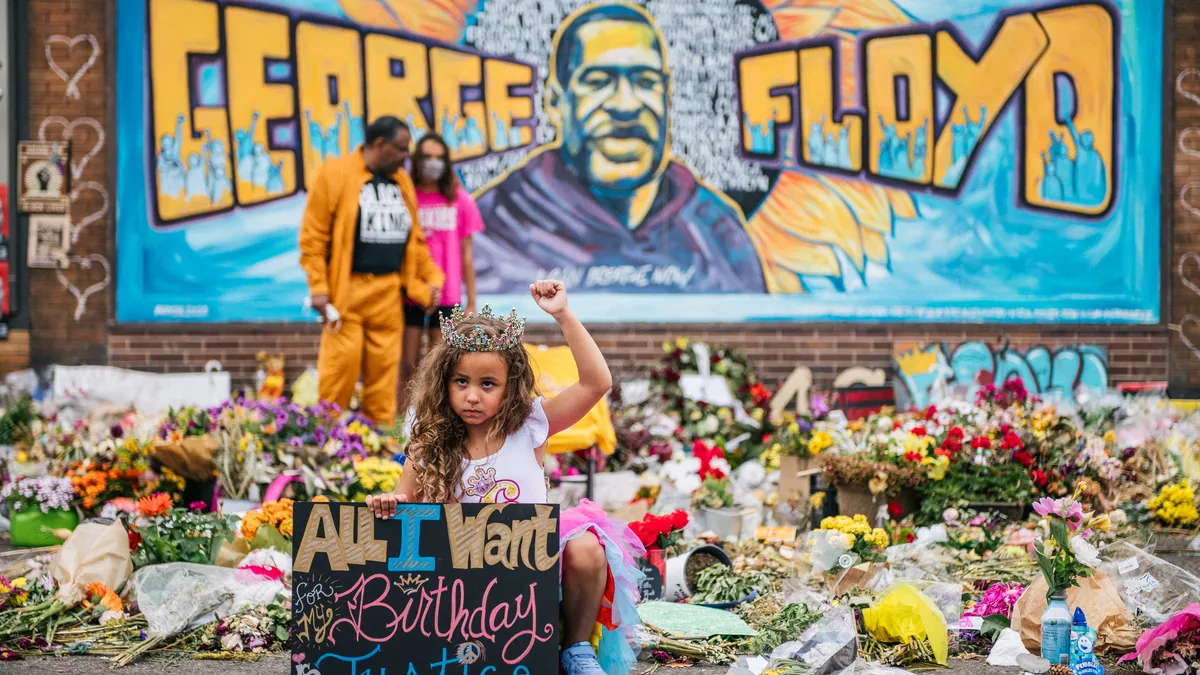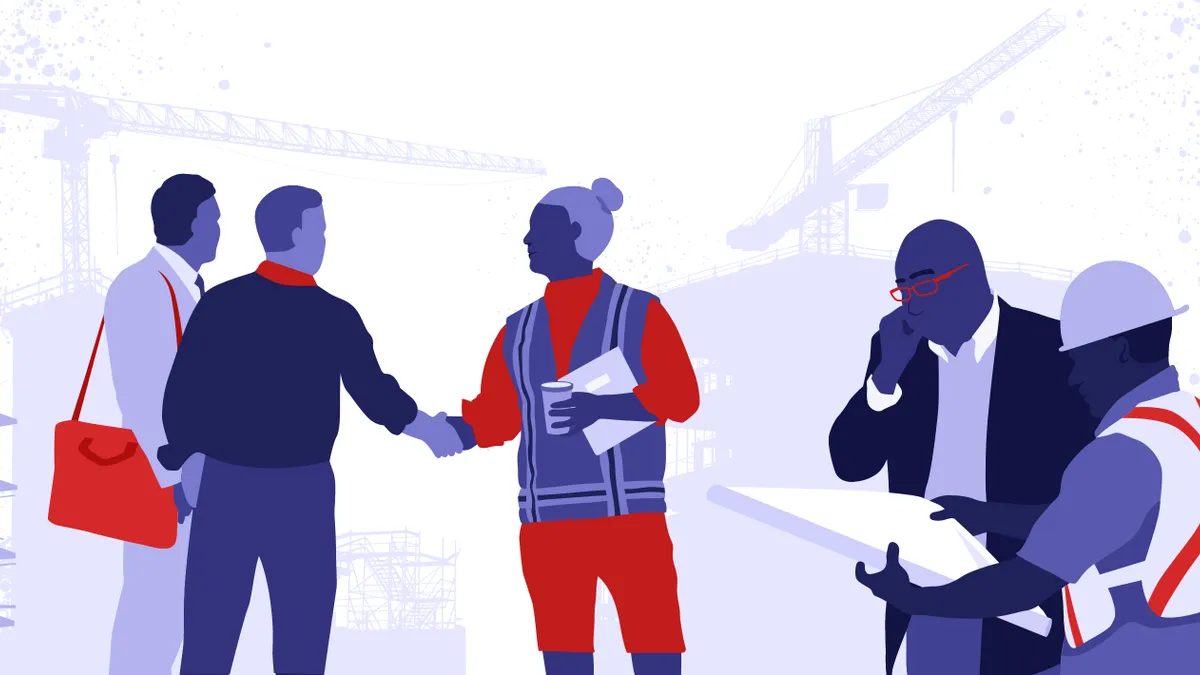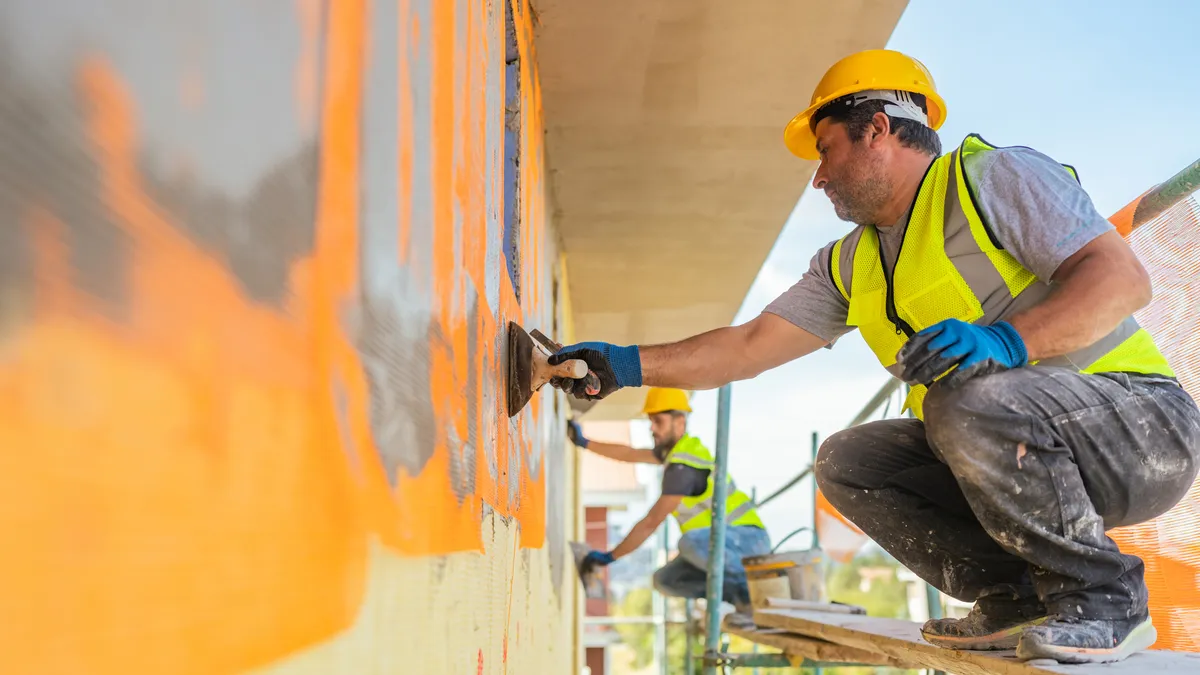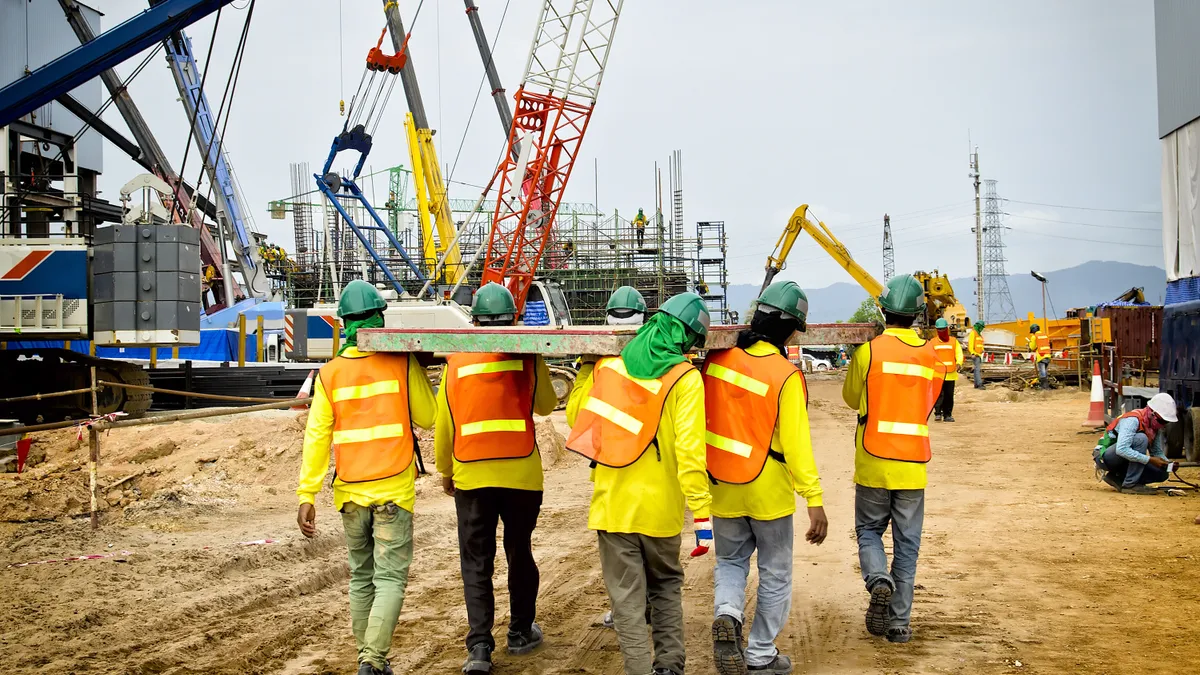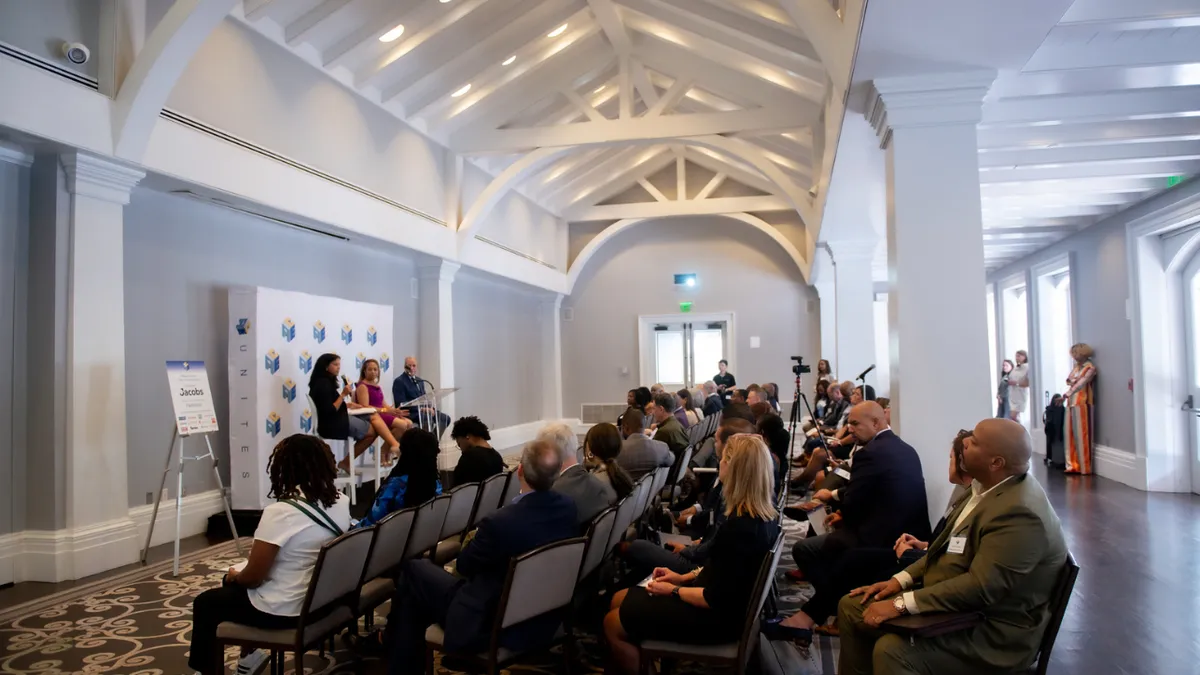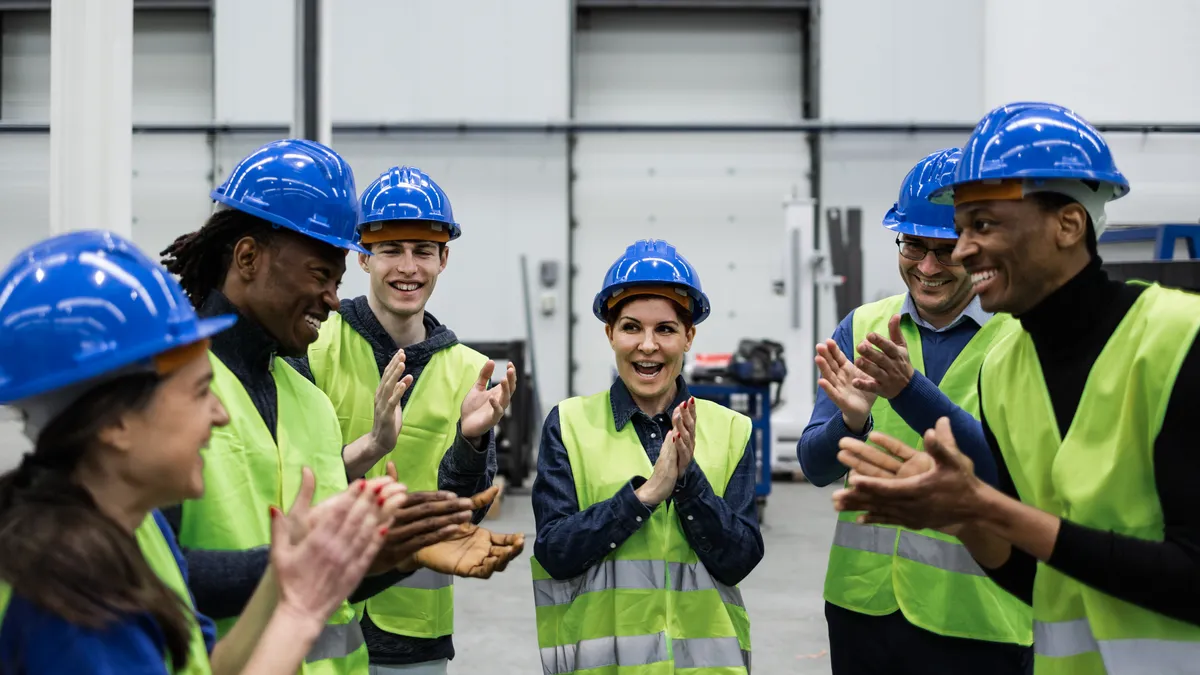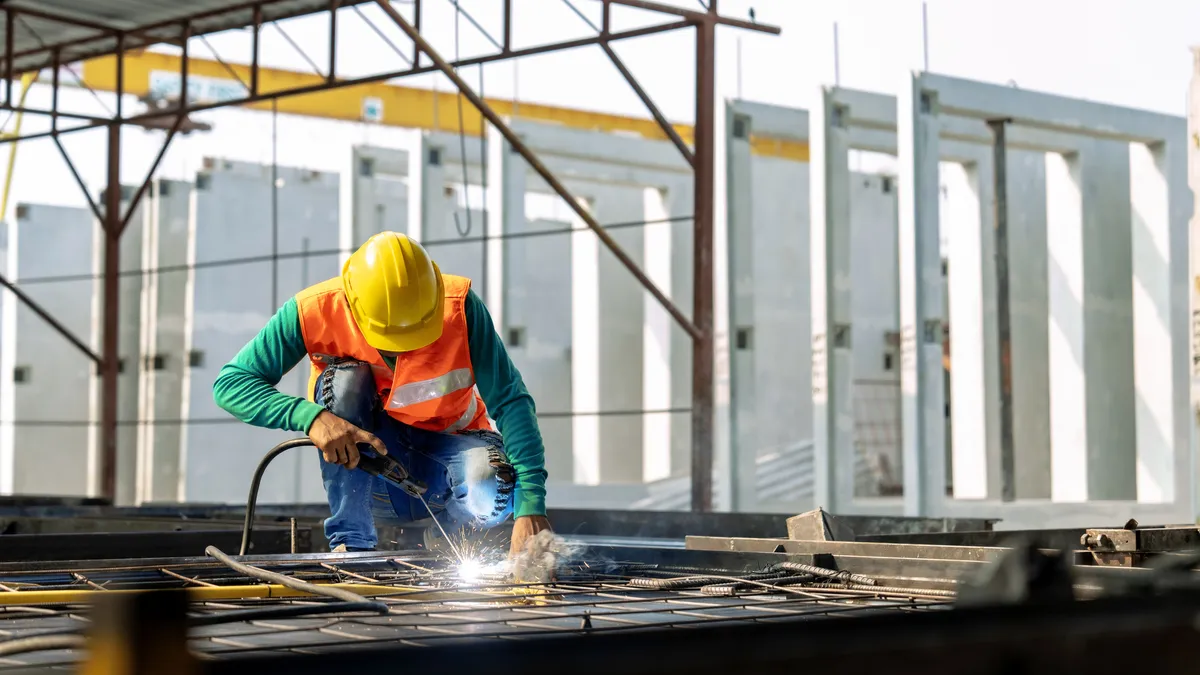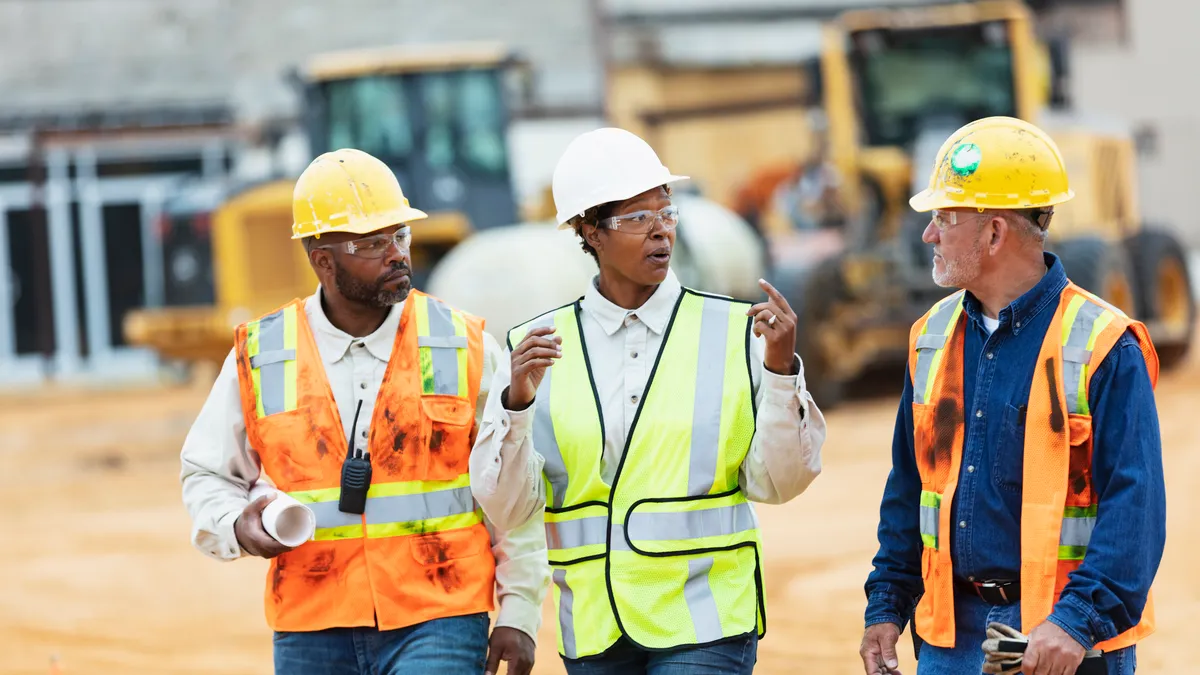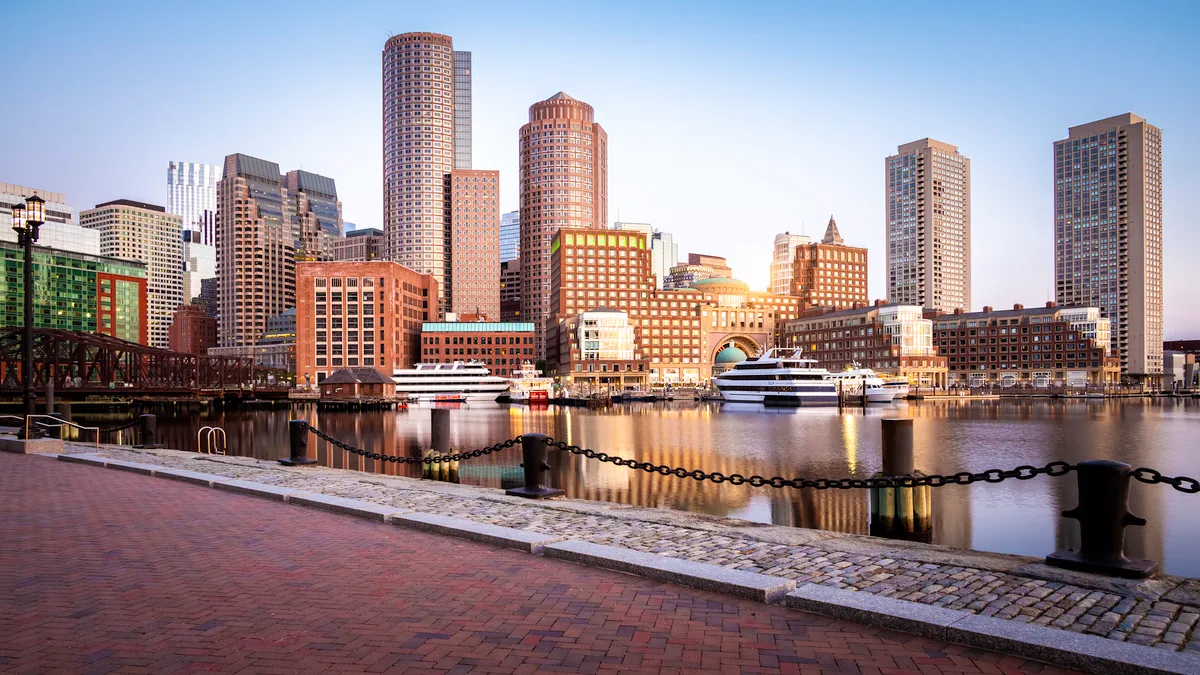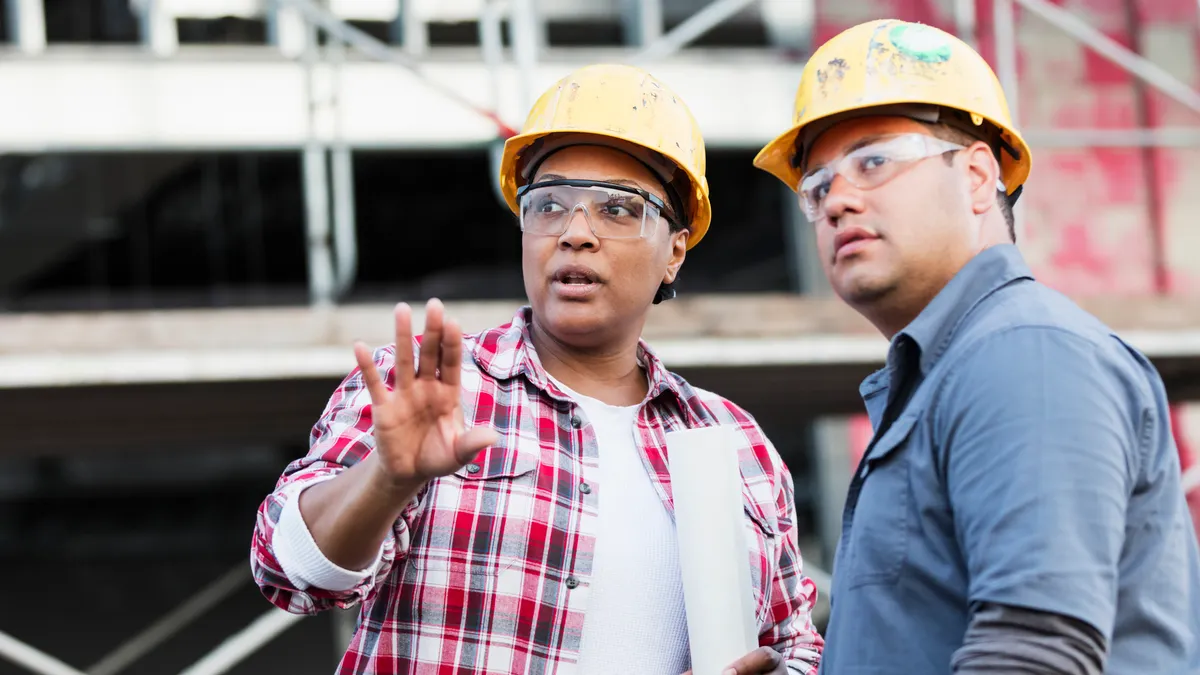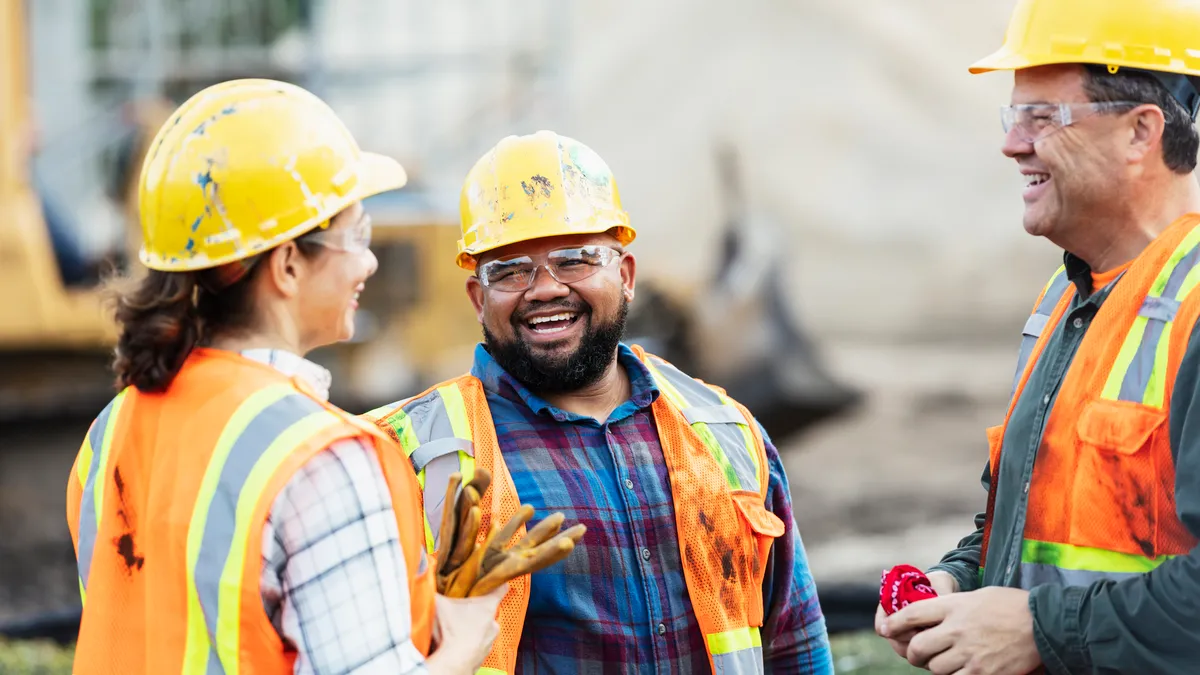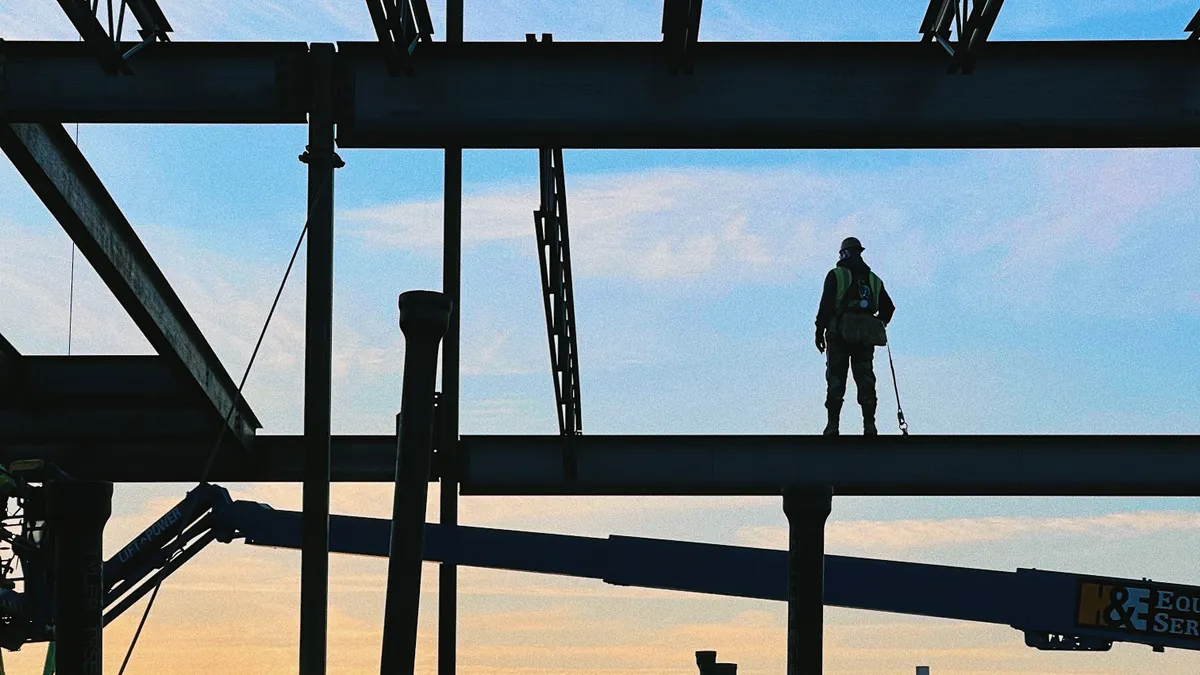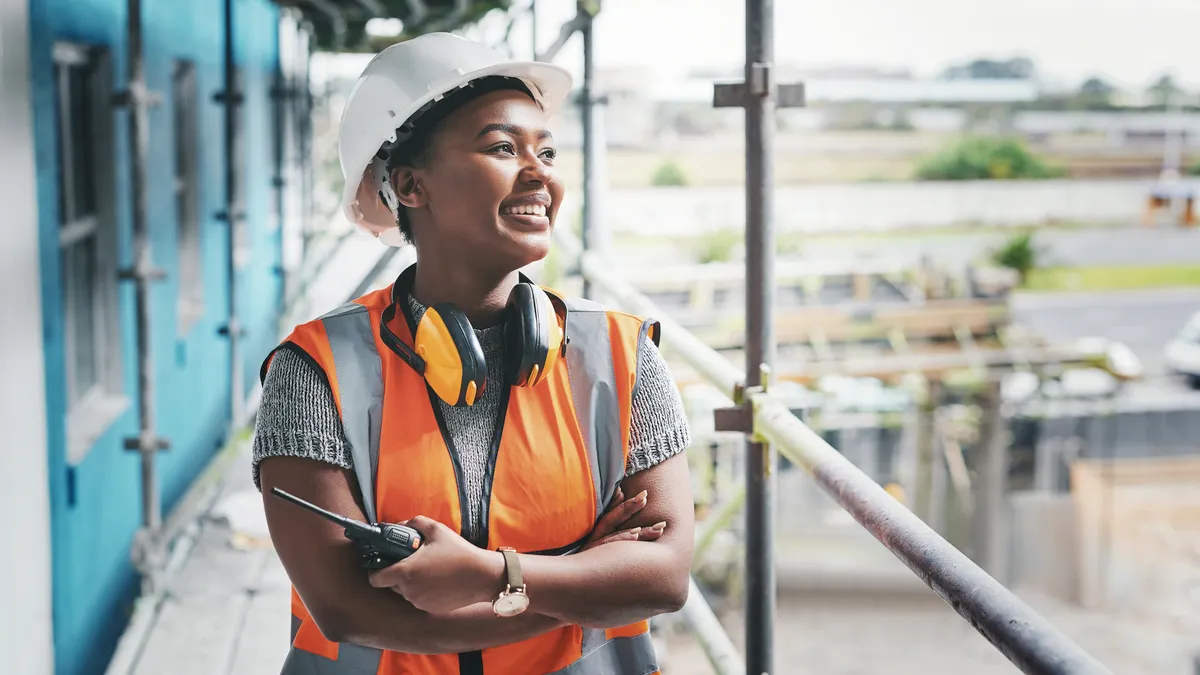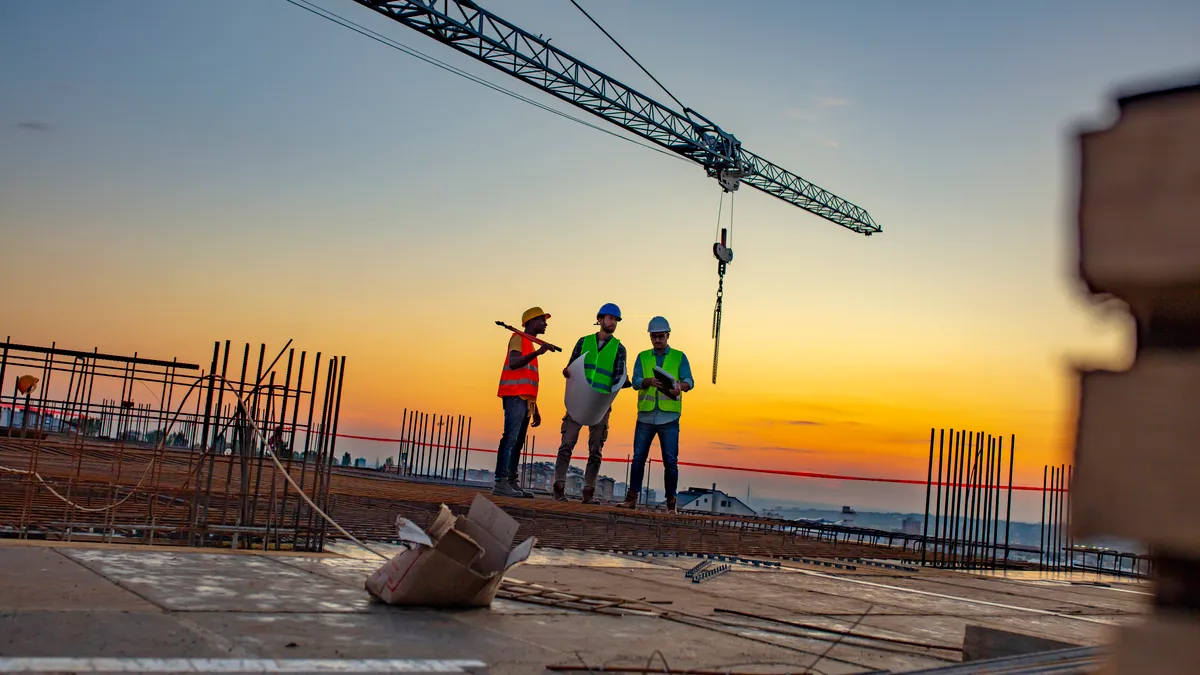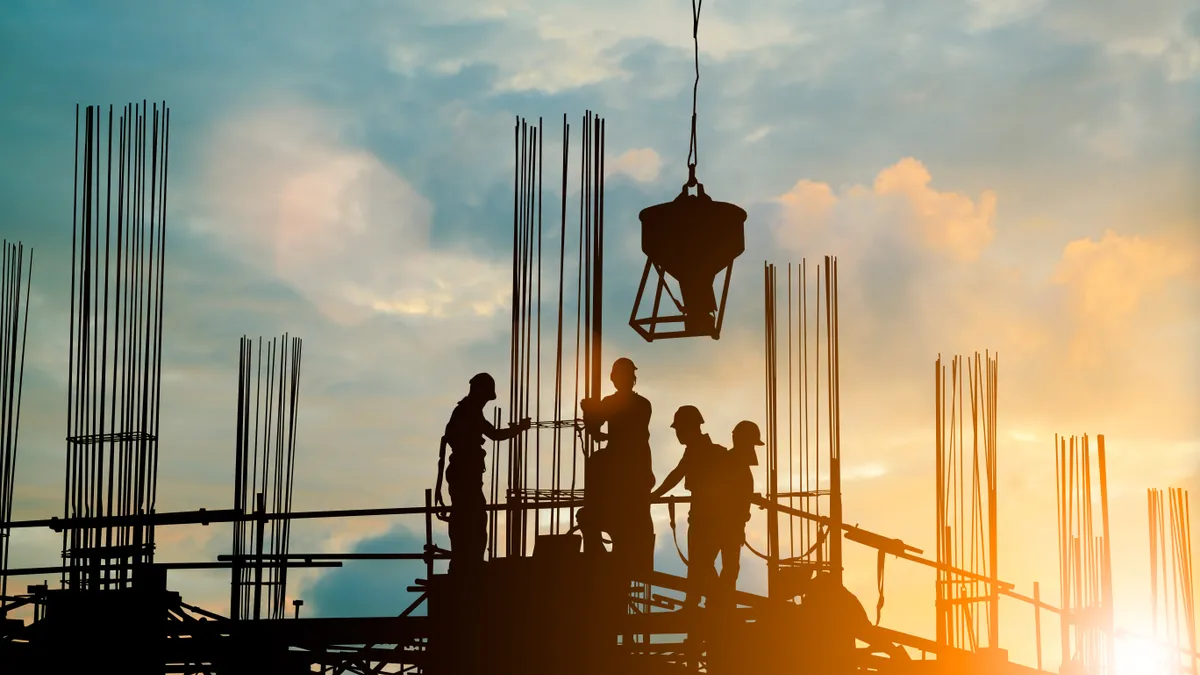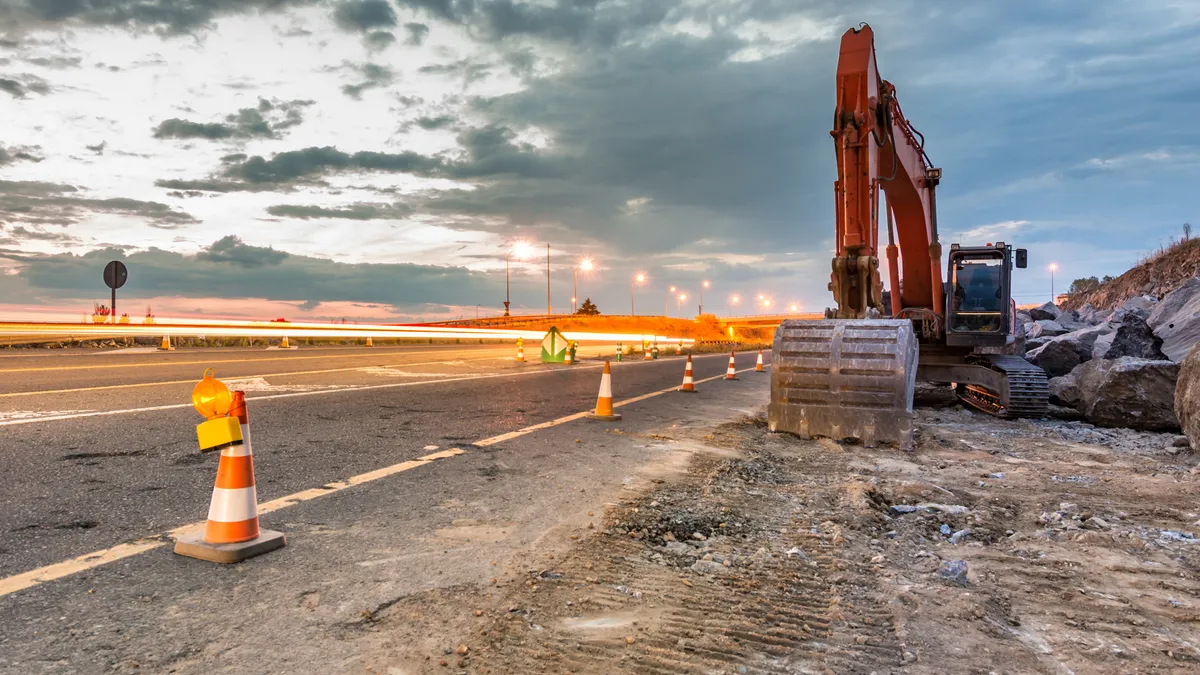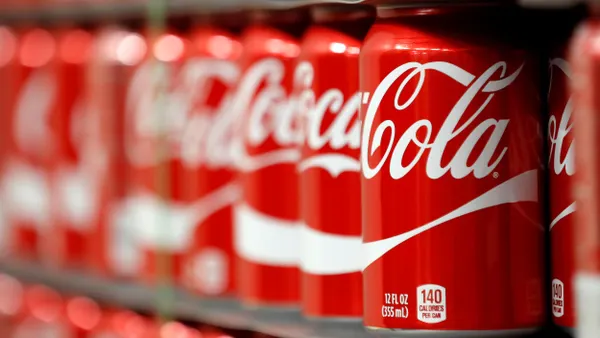M.A. Mortenson's headquarters is just 7 miles from the Minneapolis intersection where George Floyd was murdered in police custody in 2020.
The tragedy ignited violence and destruction on its doorstep, and spurred Mortenson and five other contractors to spearhead the inaugural Construction Inclusion Week in 2021.
At that time, Mortenson CEO Dan Johnson was blunt, telling workers that if they didn’t embrace inclusion on jobsites, “you don’t have to work here.” The firm has lived up to those words: It fired a subcontractor's worker on the Meta data center project in Eagle Mountain, Utah, for placing a noose on site.
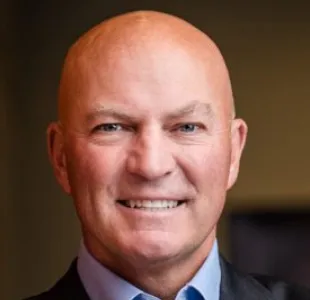
This year, Mortenson is serving as co-chair of Construction Inclusion Week, along with Redwood City, California-based DPR. The event includes a series of videos and webinars each day.
Here, Construction Dive talks with Johnson about how the firm has handled bias-motivated incidents on its jobsites and his outlook for the future.
Editor’s note: The following has been edited for brevity and clarity.
CONSTRUCTION DIVE: What is happening with Construction Inclusion Week this year?
DAN JOHNSON, MORTENSON: One thing we wanted to do was make it easy for people to participate. Conferences are tough, people have to travel to physically attend. So instead, we made some events people can dial into.
We really tried to scale it for folks that are just starting their journey, as well as having rich content for people that are well along their journey.
I think one of the coolest things we’re doing is called the DEI Maturity Model Assessment. If you're a company, you can go in and actually fill out a survey and get a gauge of where you're at on the journey, and what actions you should take to either get started or to continue down your path.
Mortenson has taken a stance against hate on jobsites. But as we saw at the Eagle Mountain, Utah, data center project that you’re building for Meta, we keep hearing about these incidents. How would you rate the industry's progress since last year’s CIW?
Certainly the bias-motivated events we’re seeing in the industry aren’t new. What's new about them is that a light is being shed on them. For years, if there was racist graffiti on a project site, you would just go paint over it and not tell anybody. Now, we’re stopping multibillion dollar jobsites because someone wrote graffiti. There’s a positive context to that.
It sounds counterintuitive, but that's what's going to change these things from happening. In the long term, shedding a light on this and having it be so negative for the people that are doing it to the point they are discovered, they lose their jobs and are ostracized from the industry, that's what's going to change it.
You mentioned customers wanting this. You, Meta and other contractors have talked about having a response plan for these incidents. What does that plan look like?
We actually have worked with Turner Construction and other industry counterparts who also build for Meta to pretty much create a common playbook on how we respond. It looks very similar to what happens if there's a significant injury on one of our projects, where a senior executive responds within 24 hours with a visit to that jobsite.
It’s the same with these bias-motivated events. When the noose was found on the Eagle Mountain site, our senior vice president flew to that jobsite immediately.
And other companies are doing the same thing. This is the kind of topic where, like safety, you tear down the competitive walls. We're only going to get better if we join arms with our competitors to say, “No, this is not acceptable.”
You talk about shutting down multibillion-dollar jobsites when these things happen. What’s the business case for doing so?
Every construction company right now needs more people. The place to find them is from the populations that have otherwise been excluded from our industry, and that's women and people of color.
And unless we create a more welcoming and inclusive environment, we're not going to be successful as businesses and as an industry in meeting the demand that's in front of us right now.
So there's a real business reason to figure this out. It's mission critical for our industry to meet the demand.
Of course, this isn’t just a construction problem — we see discrimination in other industries, too. But the examples we see in construction are much more visceral. Why do you think that is?
The industry certainly has a long-time reputation of being a White male-dominated culture. And that good old boy culture, in some parts of our industry, still exists.
Until we break that down, until we educate people and get them to understand how important it is to accept everybody in the industry and to welcome them in and make them feel like they're part of it, those biases are going to persist.
That's what Construction Inclusion Week is all about.



